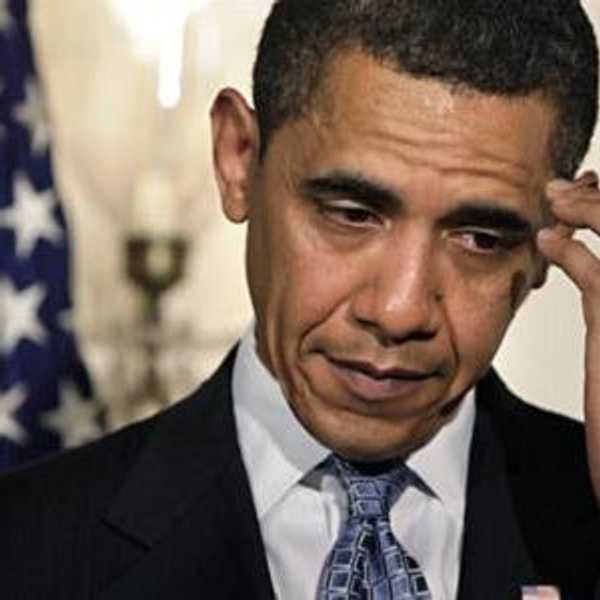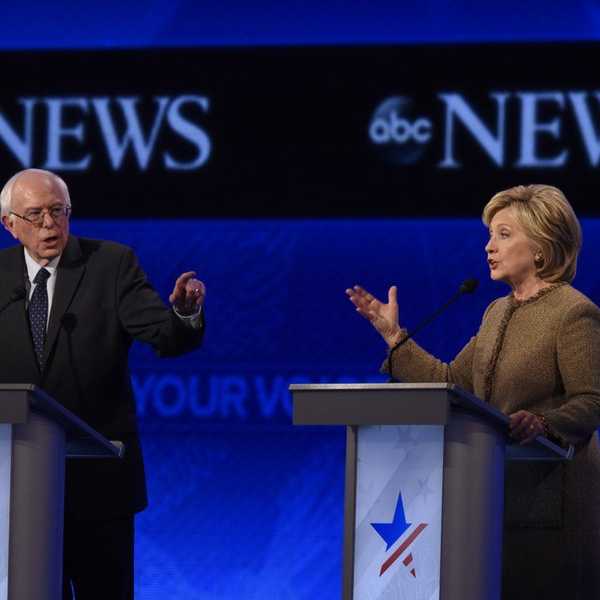Welcome back! After he talks about the reasons why peace talks are so hard, Abu Toameh looks to us and tells us about his experiences traveling to many American college campuses. He says that many are very unwelcoming to his position, and that Berkeley, UChicago, and University of Michigan were actually the most hostile toward him. In fact, he had to be escorted around U of M's campus by the police for his own safety.
Apparently, people on the college campuses disagreed fundamentally with his statement that Israel should exist as a state. The students were more there to argue than to discuss, even though they had never been on the ground, nor had they seen what the reality of the situation was like.
They tried to be more Arab-thinking than Abu Toameh himself--an Arab-Israeli--but Abu Toameh said that in the end, their long term goals would have harmed Palestinians. To Abu Toameh, the definition of helping Palestinians is to help raise the standard of living. People on the ground are tired of hearing politics this and politics that; they just want a better life that they can tangibly experience.
Again, Abu Toameh said that the solution should be a divorce between the Israel and Palestine, which meant a physical separation as well. The issue with the one-state solution is that it is hard to achieve a Jewish homeland in the way that many Jews would like: both Jewish and democratic.
This means there must be a Jewish majority and that all citizens would be the same under the democracy. However, a one-state solution that took all Arabs residing in the region would quickly see that the Jewish population is actually a minority, physically speaking.
If such a state were to be democratic, the vote would not be Jewish. So then, they would demote Arabs to a second-tier citizenship, but then it would not be true democracy. The separation, physically, of Palestinians away from Israelis would do them both a favor: Israelis would get their Jewish, democratic state, and Palestinians would get their own state as well.
Abu Toameh recognized that his idea sounded great in theory, but that it would be difficult to get millions of Palestinians out of Israel and Israelis out of Palestine. There is currently no official system of apartheid in Israel working against Palestinians, but Abu Toameh does see that Palestinians don't necessarily get 100% equality in terms of infrastructure, public funding, and employment. They are often working for much less than what a Jewish Israeli would get paid, though it is still more than what they would make in the Palestinian territories. It's not apartheid, but it's still discrimination.
The PA should be fighting for their citizens' rights rather than their rights as an authority--and Hamas should not be fighting against them for their own rights as an authority either, because again, the Palestinian citizens are the ones who are suffering in the end.
Going back to not demonizing Israel, Abu Toameh says that Israel is the only country that funds and helps send supplies to Gaza on a daily basis. While all other countries have essentially placed a siege on Gaza, Israel still has quotas of items it can send into the Strip.
Of course, as we will see in a later chapter when we're at the Gaza border, they have certain things they cannot send. It is in Israel's interest to help the Palestinian economy, both in Gaza and in the West Bank, because that would mean that one day, the Palestinians could function economically on their own and make the peaceful divorce between the two regions much easier. Israel helps the Palestinian state more than all of the other Arab countries in the region.
Abu Toameh says that in Palestine, there is such a demonization of the other side that leaders are elected based on how much they have "done for the revolution." It is better to have graduated from an Israeli prison than from an American university, because at least serving time as a prisoner of war or a political prisoner says something about one's dedication to the Palestinian cause. Abu Toameh believes that this mindset breeds radicalism and suppresses good, organized leadership.
He outlines three realistic solutions to the Palestinian refugee crisis. The first is that when and if a Palestinian state is created, refugees can move back into this area. The second is that refugees be provided financial compensation to get back on their feet. The third is that they are offered to resettle to a third-party country; this last one would have to be a global effort.
The international community would need to be welcoming, and the Arab countries who have alienated them in society for the last 70 years would have to start granting them citizenship. Abu Toameh says that the promise of returning to the homeland for Palestinians has become unrealistic and that Arab countries who continue to say so are lying to themselves and to the refugees.
He believes in a two-state solution, not because he thinks that Israelis love Arabs or the other way around, but because it would benefit both sides if they didn't have to see each other on a daily basis.
The more I write from each person's perspective, the more I can see where they are coming from. However, I also start to notice small flaws and contradictions within their own arguments, and it leaves me feeling all the more confused.
Is what we heard just another form of propaganda, with the speakers hoping that we won't catch these small details? Or am I just misinterpreting things? For example, how is there to be a complete divorce between the two peoples if Palestinians are to keep their right to work under Israeli employers, since that is the condition many Palestinians want to keep in order to put food on their tables?
Some things I heard may not line up perfectly with each other, but I can still sense the overall perspective behind each narrative.
In the next section, we will move on to Monday, January 7th!
- Bogus allegations of "anti-Semitism" create real climate of fear for ... ›
- Israel Studies Seminar: Hilary Term 2019, Week 1: When Climate ... ›
- Climate of the World: Israel and Palestine | weatheronline.co.uk ›
- Climate of fear silencing Palestinian, Muslim students at University ... ›
- The hypocrisy and dishonesty of attacks on Connecticut College ... ›
- Haifa - Wikipedia ›
- AN UNCERTAIN CLIMATE IN RISKY TIMES: HOW OCCUPATION ... ›
- Israel Studies Seminar- When Climate Takes Command: Jewish ... ›
- Op-Ed: Mob mentality at Vassar BDS vote typical of school's Israel ... ›
- 'Blurred line': Anti-Israel campus climate leading to bigotry, warn critics ›



















